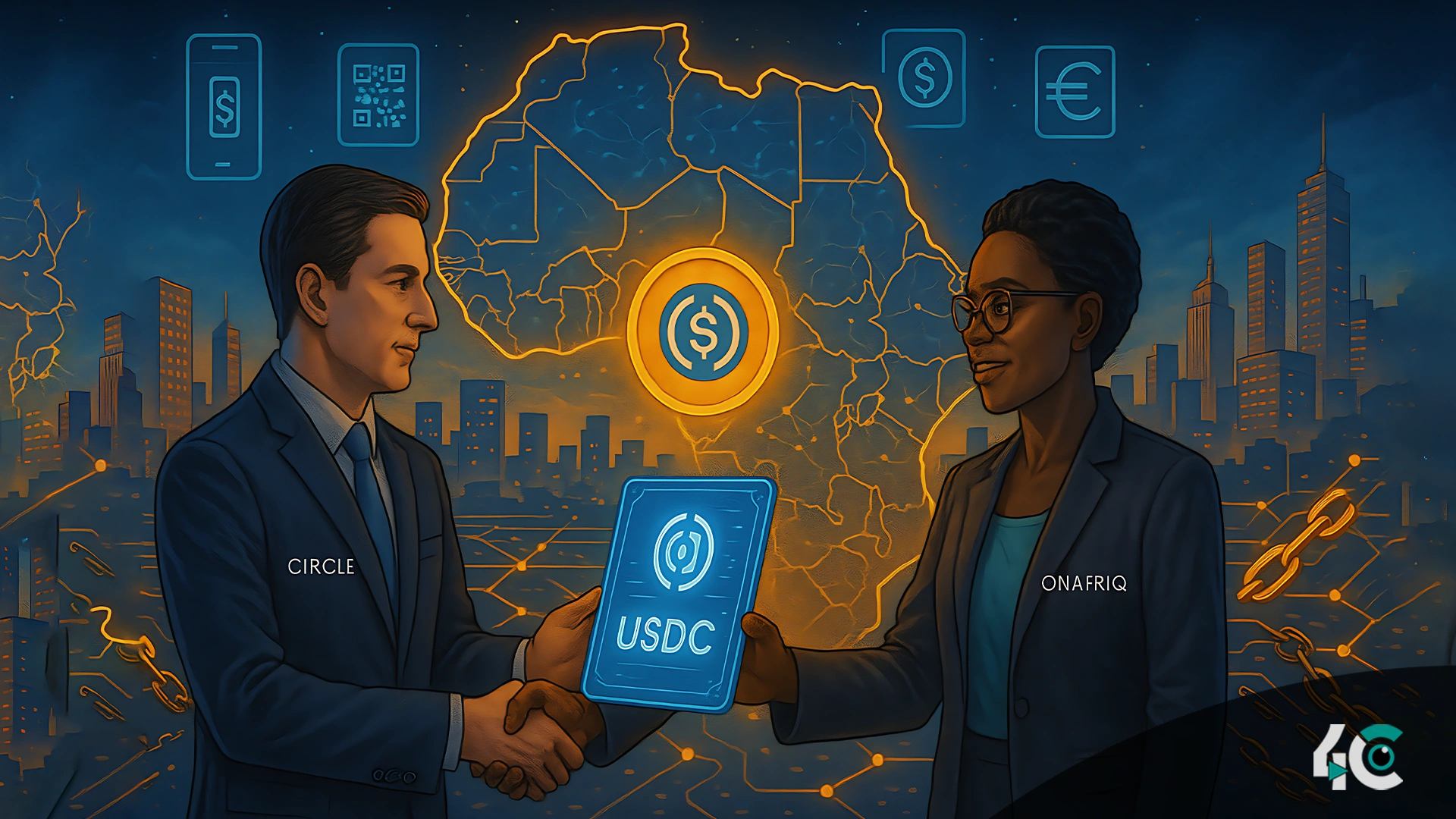Circle and Onafriq are teaming up to enhance Africa’s cross-border payments, aiming to make financial transactions faster, easier, and more accessible.
Transforming Africa’s Cross-Border Payment Landscape
For years, sending money across borders in Africa has not been without excessive charges. The process is slow, with many intermediaries. Payments are often made in foreign currency. Circle, the USDC stablecoin issuer, revealed its partnership with Onafriq, Africa’s largest payments network, to enable a pilot program using blockchain technology to build the financial infrastructure of the African continent.
The cross-border trading of goods and services will use USDC to settle payments, which is an easier and cheaper settlement option.
Onafriq connects over 200 million bank accounts and 500 mobile wallets in more than 40 African countries. By utilizing USDC and blockchain technology, they eliminate the need for banks and international intermediaries, facilitating smoother and cheaper payments.
Currently, a commercial bank outside of Africa processes over 80% of cross-border payments in Africa. The process is costing approximately $5 billion a year. Failure to be efficient costs people and organizations money.
The pilot wants to bring USDC directly into the local system so that transactions will remain in Africa, eliminating unnecessary middlemen while cutting costs and speeding up settlement time.
A Leap Toward Financial Inclusion
Dare Okoudjou, the Chief Executive Officer of Onafriq, has faith that the partnership will promote financial transactions and confidence in digital financing across the continent. The Vice President, Middle East and Africa, Circle, Mr. Miriam Kiwan, said that the partnership would transform money movement across borders and enable communities with fast and transparent payments.
Using USDC and other stablecoins is getting popular in Africa. As the currency’s instability worsened in 2024, stablecoins settled 43% of the region’s transaction volume. Stable cryptocurrencies like USDC are becoming a popular option for remittances, trade and commerce after many African currencies, including the heavily devalued Nigerian naira, failed to hold their value.
Circle’s Global Expansion Strategy
This decision is part of the global ambitions of Circle. The company has launched the Circle Payments Network (CPN), which connects with more than 20 global partners, including World Remit, Fireblocks, etc. By teaming up with Onafriq and getting legal clearance from the UAE, Circle is showing its commitment to a stablecoin payment as the tech solution to the world’s payment problems.
Potential Impact on Africa’s Financial Systems
Should this project play out as planned, the pilot will enable robust use of USDC across Africa. This adoption will go beyond remittances to include trade, payroll, and local commerce. This partnership can facilitate millions of unbanked and underbanked Africans to join the digital economy by updating payment methods and reducing dependence on offshore intermediaries.
As Africa adopts blockchain technology and digital assets, this initiative will go a long way in increasing financial inclusion, growth, and branding Africa as a player in the digital finance revolution.
The results of this pilot program will be closely watched by all stakeholders as it has the potential to change cross-border payment and the financial ecosystem at large in Africa.



























